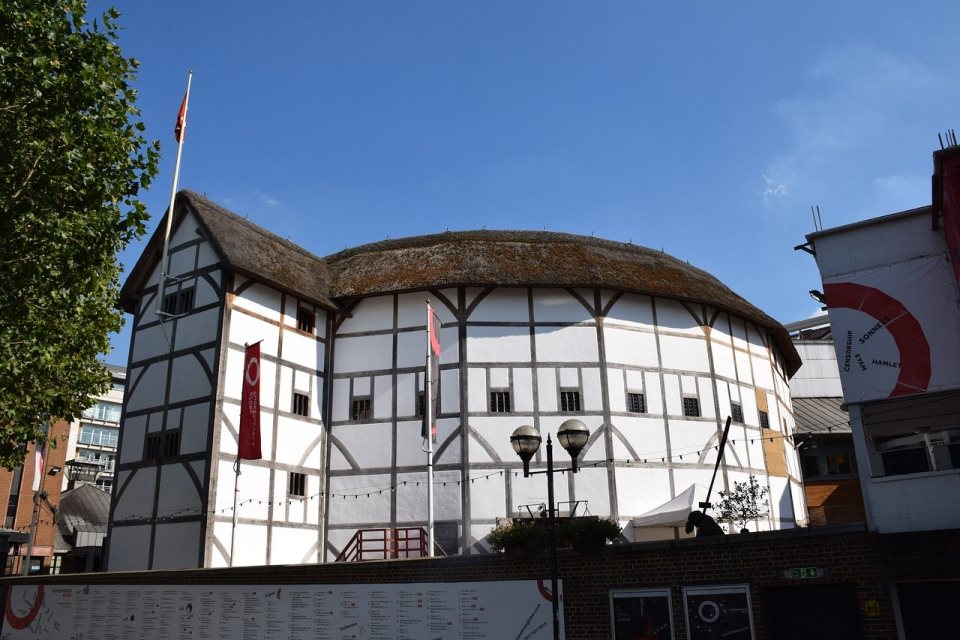
William Shakespeare - Biography of the Great Writer
William Shakespeare was an English poet, playwright, and actor, regarded as the greatest writer in the English language and the greatest playwright of all time.
He wrote a total of 38 plays and 154 sonnets. Although little is known about his life, his works such as “Hamlet,” “Romeo and Juliet,” and “King Lear” have had a tremendous influence on literature and theater for more than 400 years.
Youth and the Beginning of William Shakespeare's Work
William Shakespeare was born in Stratford-upon-Avon and was baptized a few days later, on April 26, 1564. He was the third of eight children and the eldest son. His father, John Shakespeare, was a successful tradesman. William most likely attended school in Stratford. There are no records that he went to university.
William married in 1582, at only 18 years old, to Anne Hathaway, who was 8 years older. Their first child, Susanna, was born six months after the wedding. Two years later, they had twins, Hamnet and Judith, but their son died at the age of only 11.
After that, there are no records of Shakespeare's life between 1585 and 1592 (the so-called “lost years”). It is assumed that he moved to London without his family and began his career in the theater. He built a successful career as a writer, actor, and co-owner of the acting company “Lord Chamberlain’s Men,” later known as “The King’s Men” after the coronation of King James I in 1603. In addition, he directed and wrote his plays. He dedicated his life to the theater.
There are many stories about Shakespeare concerning his “lost years” and beginnings in London. Allegedly, Nicholas Rowe, Shakespeare's first biographer, recorded that he had to flee to London because he was prosecuted for deer poaching. Another story says that Shakespeare began his career in the theater by tending the horses of theater owners in London. Other records suggest he was a village schoolteacher. There is no evidence that these stories are true.
After receiving recognition as an excellent actor and playwright in London, he also provoked negative criticism and attacks from another playwright, Robert Greene. Greene thought Shakespeare aimed too high by trying to compete with more famous and educated dramatists such as Christopher Marlowe, Thomas Nashe, or Greene himself.
Theater in 16th-century England was not highly esteemed among the nobility. However, many aristocrats were patrons and close friends of actors. By 1597, 15 of Shakespeare's plays had been published. Records show that at that time he bought the second-largest house in Stratford for his family. It is believed that he spent most of his time in London, visiting his family during holidays when theaters were closed.
By 1599, Shakespeare and his business partners had built their own theater on the banks of the Thames, called the “Globe.”

In 1593 and 1594, he composed his first poems “Venus and Adonis” and “The Rape of Lucrece,” dedicated to his patron, and it is believed that he also wrote most of his sonnets then.
Shakespeare's early plays were written in the conventional style of the time, with metaphors and rhetorical questions that did not always naturally fit with the plot and characters. However, Shakespeare was highly innovative, adapting the traditional style to his needs and thus creating a free flow of words. His works show that he was a great psychologist, a connoisseur of man in all aspects of humanity: joy and sorrow, love and hate, honesty and hypocrisy, gentleness and ruthlessness, modesty and greed. However, Shakespeare does not deal with these themes directly but uses them as means to portray man with all his virtues and flaws.
Three Periods
Shakespeare's work is divided into three periods. With the exception of “Romeo and Juliet,” his first plays were historical dramas based on folk tradition – “King Richard II,” “King Henry IV,” “King John” – and comedies influenced by Roman and Italian models – “A Midsummer Night’s Dream,” “Much Ado About Nothing,” “As You Like It,” “Love’s Labour’s Lost”…
The second period represents his most fruitful time, when he wrote some of his best works. These are his famous tragedies: “Hamlet,” “Othello,” “King Lear,” “Macbeth,” “Julius Caesar”… In these plays, the protagonist usually makes a “fatal mistake” that reveals the dark sides of human nature and causes a tragic ending.
The third period is called the “tragic period,” when he wrote tragicomedies also known as romantic dramas – “The Winter’s Tale,” “The Tempest,” “Cymbeline.”
Last Years of Life
Shakespeare spent his last five years in Stratford. He died on April 23 (believed to be his birthday) in 1616, at the age of 52. In his will, he left most of his estate to his eldest daughter Susanna, on condition that she pass it on to her firstborn son.
About 150 years after Shakespeare's death, the question arose of whether he was the true author of all his works. Some academics at “Oxford” claimed that Shakespeare never wrote a single play. Various names circulated, such as Christopher Marlowe, Edward de Vere, and Francis Bacon – more educated men about whom more was known. It was considered that one of them was the true author of Shakespeare’s plays. Skeptics wondered how someone with such modest education could write something so intellectually elevated and with such poetic skill.
William Shakespeare was already a respected poet and playwright in the late 16th and early 17th centuries, but he gained worldwide fame only in the 19th century, when the Romantics exalted his genius and the Victorians revered him almost as an idol. Even today, his plays are performed and interpreted. His works demonstrate artistic and acting abilities. Shakespeare's genius lies in the fact that his works present universal themes that remain relevant and present in the modern world.





